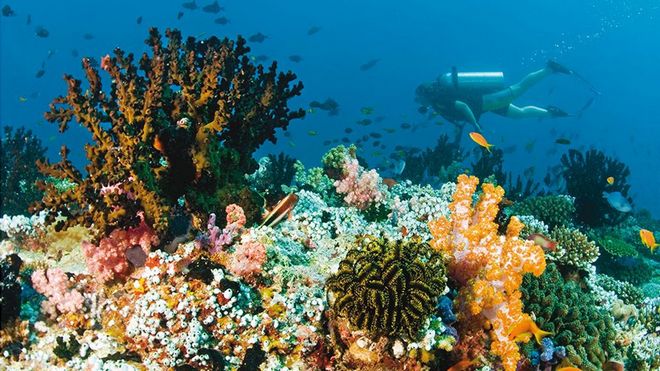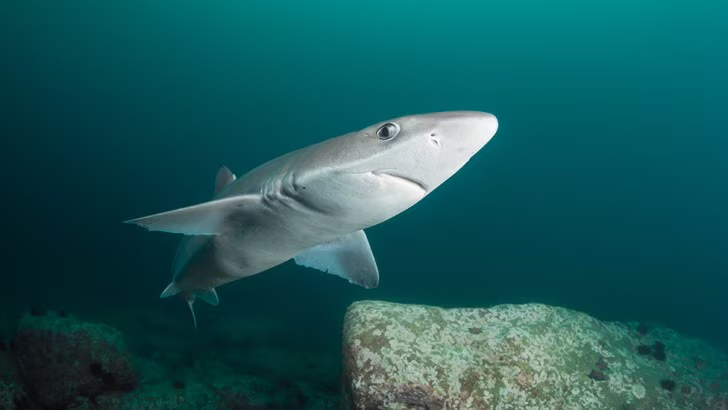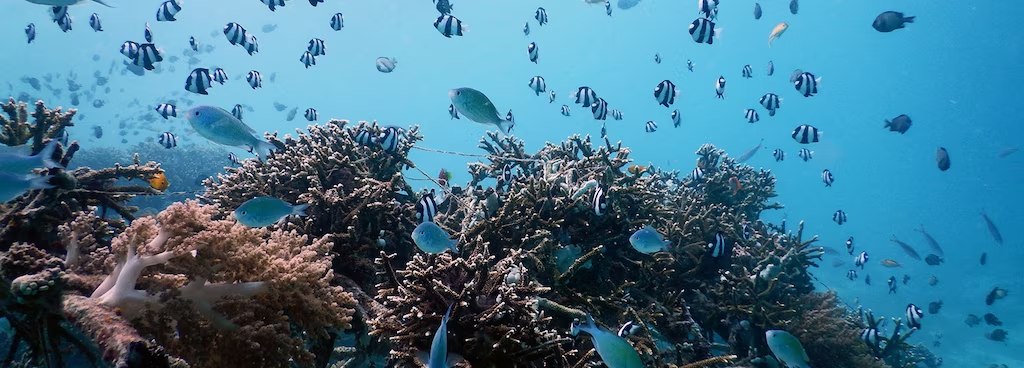- hot-spots
- coral reefs
- Maldives
- Coral reefs in the Maldives are under threat

Problems
The Maldives, a tropical paradise known for its stunning white-sand beaches and an abundance of marine life, is home to some of the most diverse coral reefs in the world. These underwater ecosystems are not just a vibrant spectacle for divers and snorkelers but are also a crucial part of the Maldivian ecosystem and economy. Coral reefs, often referred to as the 'rainforests of the sea', are biodiversity hotspots. They provide a habitat for a multitude of marine species, playing a vital role in the ocean's ecological balance. In the Maldives, they are home to over 2,000 species of fish and hundreds of varieties of corals. Beyond biodiversity, coral reefs significantly contribute to the Maldivian economy. They are the backbone of the tourism industry, attracting thousands of tourists each year who come to marvel at the underwater spectacle. Additionally, they provide livelihoods for local communities through fishing and other reef-related activities.
The threats facing coral reefs
Despite their importance, coral reefs in the Maldives are under severe threat. Climate change, leading to rising sea temperatures, is causing widespread coral bleaching. Ocean acidification, another consequence of increased carbon dioxide levels, is reducing the corals' ability to build their calcium carbonate structures. Human activities are exacerbating these threats. Overfishing disrupts the ecological balance, while pollution from land-based sources and tourism-related activities further degrade these fragile ecosystems.
Impact of the degradation
The degradation of coral reefs has far-reaching impacts. It threatens the survival of the numerous species that depend on them, leading to a decline in marine biodiversity. For the Maldives, where tourism and fishing are economic mainstays, the degradation of coral reefs could have devastating economic consequences. It could also lead to the displacement of local communities who rely on the reefs for their livelihoods. Recognizing the threats facing their coral reefs, the Maldives has undertaken several initiatives to protect and restore them. These include the establishment of marine protected areas, the promotion of sustainable fishing practices, and the implementation of coral reef monitoring and restoration programs. International collaborations and research are also being encouraged to enhance the effectiveness of these efforts. The coral reefs of the Maldives are a vital ecological and economic resource. Their degradation poses a significant threat not just to marine biodiversity but also to the country's economy and the livelihoods of its people. It is imperative that we intensify our efforts to mitigate the threats facing these underwater paradises. Only through concerted global and local action can we hope to preserve the coral reefs of the Maldives for future generations. Like many countries in the region, the Maldives relies on its coral reefs to sustain local livelihoods. Its reefs are critical for coastal protection, as they reduce impacts from waves and storms, which cause erosion. And they are also important for economic prosperity. The Maldives depends on the reefs: 58% of the population is employed in the tourism sector, and 98% of exports come from reef-associated fisheries.
Gallery
3Timelines
2023
CSIRO researchers have been working with colleagues at the Maldives Marine Research Institute to train locals in solutions. They have used our experience with the Great Barrier Reef to implement larval-based restoration methods in the Maldives.
2020
Major coral bleaching in the Maldives has been recorded with minor bleaching occurring in the subsequent years. Live coral cover declined to as low as 2% average cover. So, solutions were needed in the Maldives to help with coral recovery.
2016
Another major coral bleaching event occurred, affecting approximately 60% of all coral colonies and up to 90% in some sites. A comprehensive scientific survey was conducted by the Maldives Marine Research Center (MRC) and the Environmental Protection Agency (EPA) in partnership with the International Union for Conservation of Nature (IUCN.
1998
The first major coral bleaching event occurred in the Maldives. The heatwave in 1998 caused the first and most severe recorded bleaching in the Maldives coral reefs.

